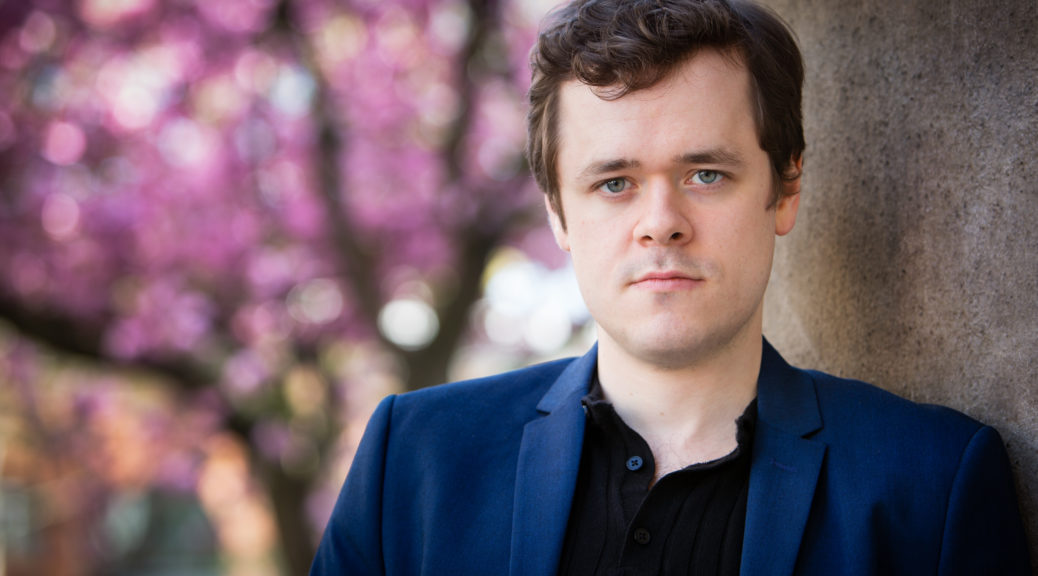
Too Much the Gentleman
Taking on the most passionate repertoire by Prokofiev and Liszt, the pianist maintained total composure. At a time when a Horowitz or Liberace would be gyrating and sweating profusely, the artist emerged as neat and cool as at the start.
This is Paul Grosvenor, a superb 26-year-old English pianist whose very composure may be his only enemy. He makes the great virtuosic challenges at the keyboard seem like child’s play, without a mussed hair nor a mopped face—perfectly dressed, down to the spotless red handkerchief tucked into his immaculate suit’s breast pocket. Unflappable to the core. Sound the sirens and he’d keep right on playing, never missing a note.
For his March 13 recital at Herbst Theatre, he spanned the post-Beethoven century 1839-2017 with tonal music from Germany over to Russia. His piece de resistance was Liszt’s immensely challenging “Reminiscences of Norma,” after the tempestuous opera by Bellini. Here the themes from the opera appear to go from pianistic to orchestral proportions as the soloist runs the keyboard from top to bottom in voluptuous, explosive décor as only the master showman Franz Liszt himself could create it. The 16-minute showpiece had me mopping my brow as Grosvenor demonstrated his total technical mastery, fleshing out the contrasts now with one finger, now with seemingly 12 or so. The house of course went wild, holding out for some encores.
Earlier Grosvenor established his credentials in sensitivity and extravagance with both Prokofiev’s “Visions fugitives” and Schumann’s “Kreisleriana.” Playing most of the 20 Prokofiev pieces (sometimes heard as individual encore works), he evoked shimmering flurries of flying notes and many shifting modes in Prokofiev’s volatile persona. The contrasting vignettes get into a foggy world of indistinct exoticism, fueled by Grosvenor’s deft touch.
“Kreisleriana” is a 35-minute outpouring of inner conflicts that the composer himself was subject to, as embodied in the fictional character Johannes Kreisler. Set in eight sections, this work alternates in calm-passion pendulum swings, and further alternates within individual sections. While you might be conveying conflicts through dissonance or constant chromaticism, Schumann does it in his more orderly fashion, through his harmonies, primarily varying tempo and intensity. So orderly in fact that I defy any one to locate its message of “utterly wild love,” which Schumann wrote about in a letter to his wife-to-be.
The brief Janacek enigma “Sonata: 1.X.1905” also tagged along, plus two encores for the enthusiasts: Moritz Moszkowski’s A Flat Etude Op. 72, No. 11, and Edvard Grieg’s lyric piece “Erotik.” After which a formal bow, and exit, with him looking as calm and relaxed as at the very start.
Paul Grosvenor piano recital, presented by S.F. Performances, Herbst Theatre, S.F. For SFP info: (415) 392-2545, or go online.